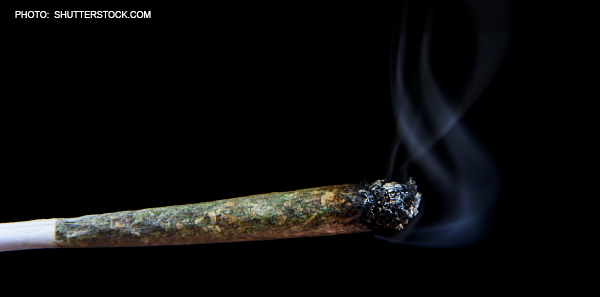
I was disappointed by the one-sided argument published in ACEP Now’s May 2017 article “Experiencing the Dangers of Marijuana Firsthand” by Brad Roberts, MD. Most of what the author points to as his evidence comes from dated reports and the anecdotal personal experience of a physician who describes himself as just out of residency. Most disturbing are instances in which Dr. Roberts conflates correlation with causation, such as his conclusion that legal cannabis is responsible for increased homelessness in Pueblo, Colorado. While I agree with his assertion that there are “likely some very effective ways to use cannabinoid receptors” and the need for unbiased education, his main premise is deeply flawed and stigmatizes the millions of patients who are helped daily by medical cannabis.
Explore This Issue
ACEP Now: Vol 36 – No 10 – October 2017Many key facts were omitted from Dr. Roberts article, including recent studies that show decreases in overall prescriptions as well as hospitalizations and overdoses related to opioids in states that have legal and regulated medical cannabis programs.1,2 In fact, one study even showed a decrease in 21- to 40-year-old drivers who tested positive for opioids involved in fatal car crashes in medically legal states.3 Also absent was a description of the draconian restrictions that remain to this day on cannabis research, making it difficult to perform the type of double-blind, prospective, peer-reviewed studies that validate what countless patients already know about these medicinal compounds.4 I find it difficult to understand how Dr. Roberts can assert that medical cannabis should have a “black-box warning” since it is typically well-tolerated and there has never been a case of fatal overdose. Perhaps instead he should advocate for similar warnings for diphenhydramine, which not only causes cardiotoxicity and anticholinergic syndrome but also has psychoactive side effects?
To say there is no cited research related to cannabis use is simply untrue. Earlier this year, the National Academies of Sciences, Engineering, and Medicine performed a rigorous and conservative review of the scientific literature regarding the therapeutic use of cannabis and cannabis-derived products published since 1999. Among other conclusions, the report found strong evidence that cannabis preparations were effective in treating chronic pain, muscle spasms related to multiple sclerosis, and chemotherapy-induced nausea and vomiting.5 Another recent article reviewing 140 studies performed over the past 40 years concludes that cannabis-based medicines show promising effects in the treatment of anxiety disorders, dystonia, and some forms of epilepsy.6
We, as the medical community, suffer from a collective amnesia as it pertains to cannabis as medicine. In fact, before the arbitrary application of the Marijuana Tax Act of 1937, which effectively made cannabis illegal, physicians had published hundreds of papers recommending its use for myriad medical conditions.7 It was even listed on the American Pharmacopeia as a medicine until 1941. With recent studies reaffirming what we already knew 100 years ago, where is the outrage from medical professionals about the virtual impossibility of doing clinical trials in this country to validate formulations, dosages, and efficacy?
Pages: 1 2 3 | Single Page





2 Responses to “Opinion: Emergency Physicians Need Better Education on Medical Cannabis”
November 12, 2017
Larry A. BedardI want to thank Dr. Bier for an excellent and informative article about cannabis.
I was also disappointed by the one-sided argument published in ACEP Now’s May 2017 article “Experiencing the Dangers of Marijuana Firsthand” by Brad Roberts, MD.
As a relatively new resident Dr. Roberts clearly doesn’t understand the difference between correlation and causation. My brother, Dr. Charles Bedard, practiced ENT in Pueblo of more than 40 years. When he arrive Pueblo was a prosperous town with a thriving large steel mill. When the steel mill closed, the rates of unemployment, poverty and homelessness greatly increased.
The so-called “cannabis refugees” who move to Colorado for medicinal cannabis are parents of children who suffer from complex seizure disorder. A randomized, double blind study reported in the NEJM demonstrated a 40% reduction in seizures with 5% of kids becoming seizure for. Last year only 9% of medical schools taught students about the endocannabanoid system, discovered in 1988
November 12, 2017
VinnyDr Bier,
AMEN! And Thank you